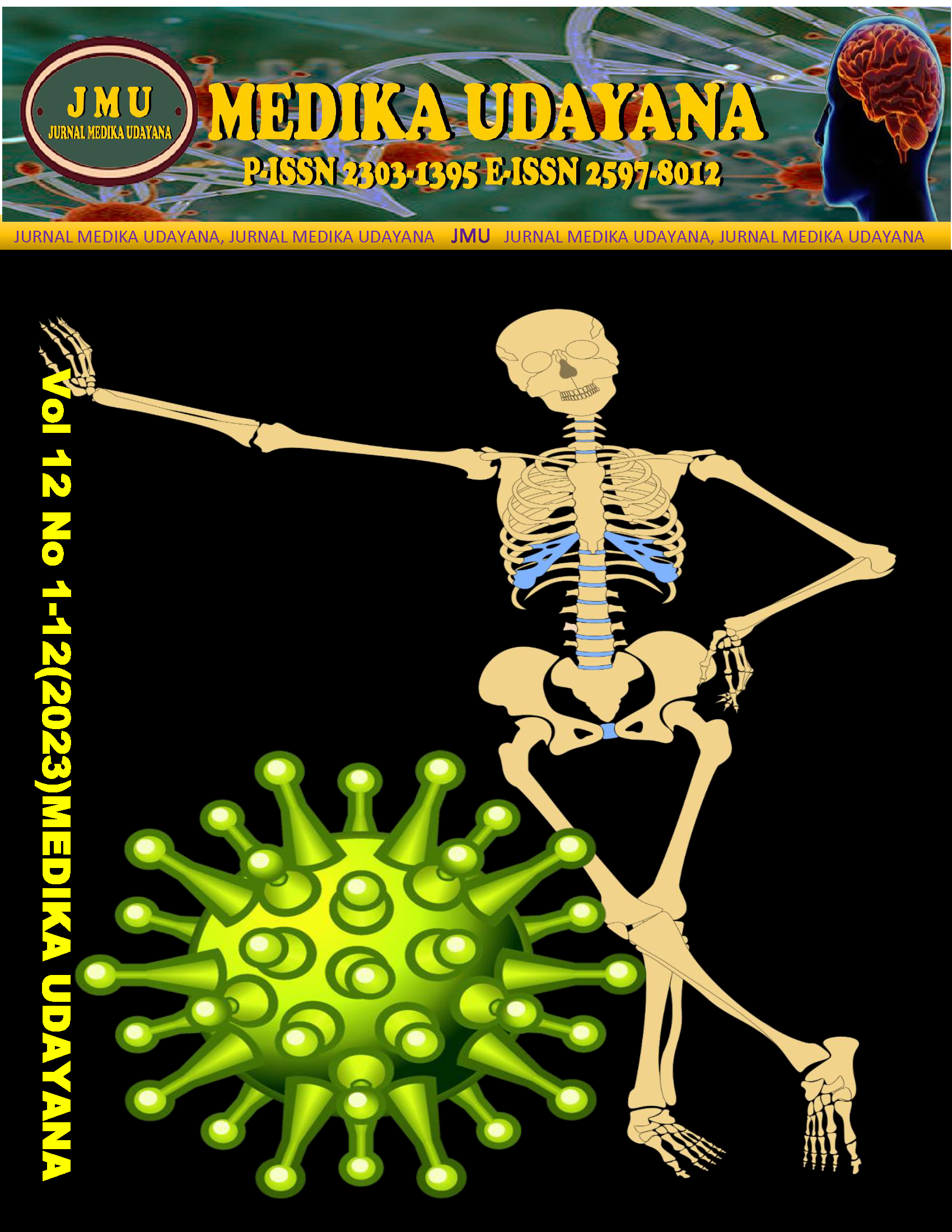Hubungan Antara Pola Makan dan Tingkat Stres terhadap Kejadian Dispepsia pada Mahasiswa Fakultas Kedokteran Universitas Udayana Angkatan 2019
Abstract
Dyspepsia is one of the digestive tract disorders that is often complained of and suffered by the community. According to WHO, the prevalence of dyspepsia in the world is 13-40% every year, while in Indonesia it reaches 40-50%. Students tend to have difficulty in adapting to a very dense routine that results in stress and a tendency not to maintain a diet, which then triggers the emergence of symptoms of dyspepsia. While not fatal, dyspepsia in students can have a negative impact on study habits, ability to concentrate, and performance on exams. This study was conducted to determine the correlation between dietary habits and stress levels on the incidence of dyspepsia. This study is a descriptive study with a cross-sectional analytics approach with a total sample of 268. The analysis techniques used in this research were univariate, bivariate, and multivariate analysis. The results of this study showed that 75.4% of respondents experienced symptoms of dyspepsia. It was also found from the bivariate analysis that there was a significant correlation between dietary habit and stress levels on the incidence of dyspepsia (p<0.005) and from multivariate analysis there was a significant partial effect between stress levels and dyspepsia (p<0.005). It can be concluded that diet and stress levels are associated with the appearance of dyspepsia symptoms and can be considered risk factors for dyspepsia. However, only stress level had an independent effect on the incidence of dyspepsia. It is hoped that the results of this study can be a reference for further research on risk factors for dyspepsia..











